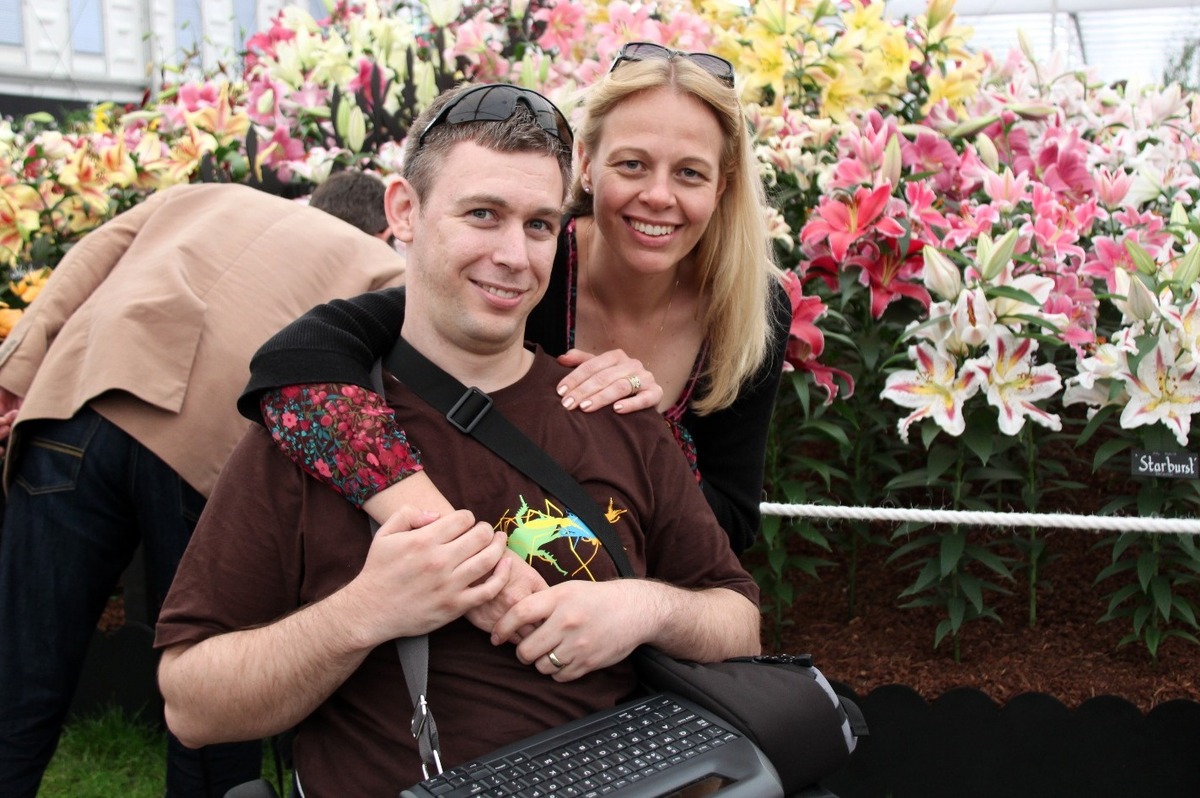This is why so many early intervention programs entail depriving autistic children of AAC support while battering them with forcible speech interventions. I guess their logic is there is no apparent physical challenge to producing speech so whatever utterances can be produced should be forced out of the autistic child by any means necessary.
The result adds to the presumption of said autistic child's incompetence because the child may have limited verbal speech ability but much larger AAC supported speech ability.
Thanks to Lydia Brown, I mostly use the term nonspeaking when discussing my son, but his situation is a bit different than most of his autistic peers. My son was diagnosed with damage to an area of his brain related to speech. We were told therefore that he was clinically nonverbal and probably wouldn't be able to speak. At all.
Ever.
Mu has spoken on occasion in more than one language since that diagnosis and even during the time he was being evaluated. We aren't certain technically how he is able to do it. When it happens I try to act casual. But because when he does speak it is usually related to responding affectionately to either his father his sister or me, I am inevitably overcome with emotion. Just after such a moment, I quietly remove myself from the room so he doesn't misunderstand and burst into tears of joy.
His voice, as he has entered puberty, is deeper, richer, and more beautiful now.
We were outside yesterday and kids ran by screeching as they played. It disturbed him. It is only on these occasions that I realize how big and different he is from others his age who do use verbal speech freely.
It seems to me, other fourteen-year-olds, talk too much.
His rare affectionate utterances have greater worth to me than the shrieking profanities and loudly whispered ableist slurs of his teenage peers dressed in what they consider their best adolescent finery.
Yesterday I realized again quite clearly that Mustafa, nonspeaking, is a better man than all the howling herd of fourteen-year-olds stomping about trying to figure out who they are by hurling insults at my silent, disabled son.
I love him. As he is. If he never utters a word again. We will continue to stand together, with him leaning on me when he needs physical support, and face the angry ableist racist mob. He doesn't need to speak. Unlike fourteen-year-olds, I know the value of well-placed words in defense of my son's right to navigate the same spaces as they do.
Autism Month should exist to educate those people. It does not. It makes them pity or resent my son and neither he nor I abide that attitude either. They should be taught that words are capital and each moment they spew the wrong ones in misunderstanding, fear, and hatred they bankrupt their own souls. This doesn't diminish my son, no matter how different he may appear to them. Different is not less. It is simply different. Disability and race are the only areas in which difference is not considered rare and precious.
Meanwhile, back at our house, a single word uttered by my son at the right time has the power to bring his jaded old Afro-Latina mother to tears.
Word.
----------------------
Resources
Educate yourselves at Lydia X.Z. Brown's blog:
http://www.autistichoya.com/
More on The Language of Autism by Michael Forbes Wilcox:
http://www.mfw.us/blog/2017/02/27/the-language-of-autism-special-interest-as-a-stigmatizing-phrase/





